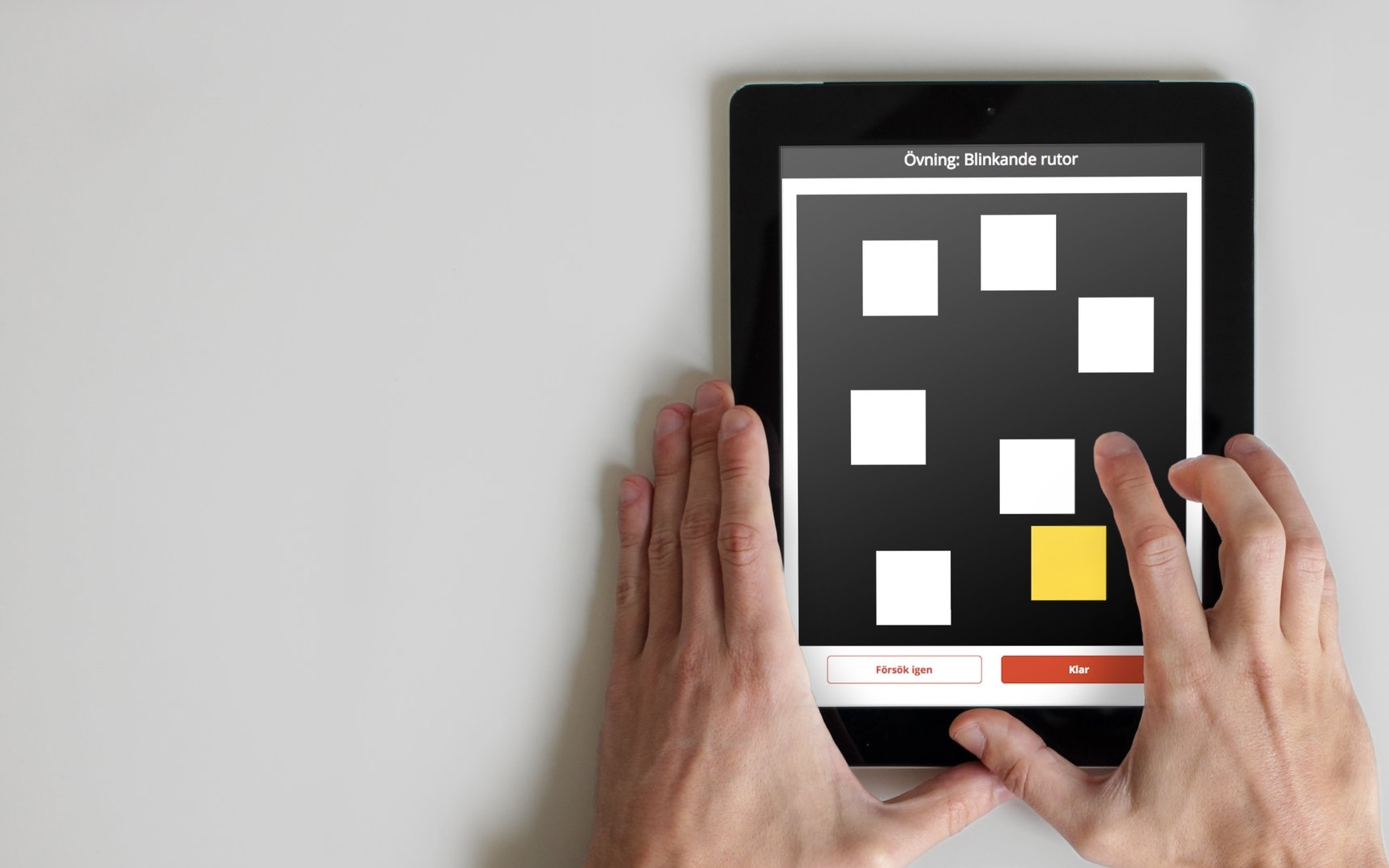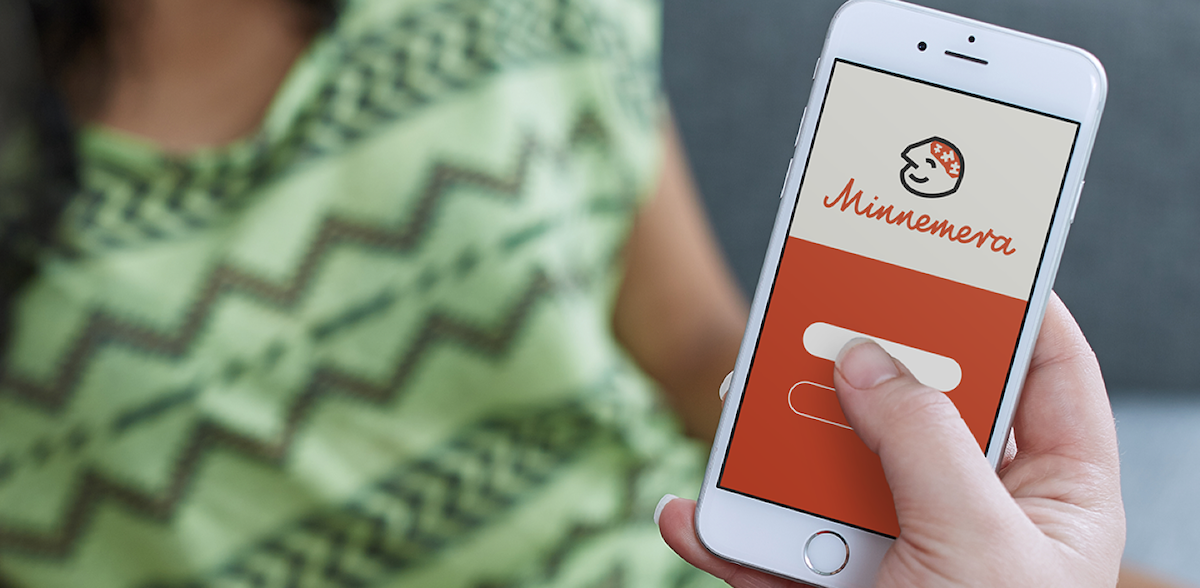Minnemera
Fighting the memory loss of modern living
Every day patients across the world are being screened for stress and memory related illnesses, a growing symptom of modern life. Swedish startup MindMore dreamed up an equally modern tool to increase people’s access to testing & improve treatment. The tool ‘Minnemera’ is the result of a summer with some of our most iterative and agile project work ever.
In Brief
- Created a Proof of Concept (PoC) for the startup Mindmore that enabled them to raise capital.
- Coded what is the first ever digital cognitive screening tool for global use.
- Key challenge was to make speech-synthesis and voice-recognition work well enough to live up to medical standards.
- Following initial success, our team continued to guide tech development of Mindmore.
Tech stack
Google voice recognition• Acapela speech synthesis• Sails.js• React
Sustainable development goals
How it started
Sara Wallén is that special kind of founder. The kind where a coffee turns into lunch. And lunch into dinner. And before you know it, you’ve spent all day bouncing around ideas and putting together plans to change the world.
Maybe it was her energy. Maybe some Jedi mind tricks. Either way, after first hearing about her idea to create a digital cognitive testing tool, we were hooked. We wanted to join the journey to enable earlier diagnosis and better treatment for cognitive diseases. To build the first ever digital cognitive screening tool that could be rolled out globally.
“It’s not everyday you understand immediately the impact a founder is going to make with their new product.” - Tobias Bard, CEO Prototyp
Sara’s startup MindMore came in under our ‘Software Summers’ program. A talent program meets tech incubator where a Prototyp tech lead guides fresh tech talent in developing real software for a startup. Part paid work experience. Part job interview. A win-win-win set-up.
The team
Sara Wallén
CEO, MindMore
Björn Helgeson
Tech Lead, Prototyp
Axel Ekwall
Developer, Prototyp
Fredrik Flovén
Developer, Prototyp
The unknowns
Stay in the box
What really excited us what that we would need to mix gameplay with medical diagnostics to create a digital equivalent to very specific analogue tests. And we had to be incredibly true to the existing methodology. Any deviance would mean no institution or practitioner would be able to transition from their existing process to the digital tool.
The full screening process includes a battery of dozens of tests. Some requiring drawing. Others testing reaction time. But one stood out as the most difficult to digitalise. It was this test we decided would be the proof of concept. If we could get that to work, the rest would be plain sailing.
The Rey Auditory Verbal Learning Test (RAVLT) evaluates a wide range of functions: short-term auditory-verbal memory, rate of learning, learning strategies, and differences between learning and retrieval. In its analogue version, a doctor reads out a set of unrelated words (like "shoe", "tree", "quickly", "rooftop") over the course of 5 different trials, and asks the patient to repeat as many as possible after each trial. A normal cognitive mind remembers more and more of them in each trial, and by studying the curve of remembered words, the doctor can learn more about different cognitive functions in the patient.
A digital version of this test would require us to get speech-synthesis and voice-recognition working well enough to be medically sound.
The tech stack
For this one, there was nothing to build on. No agreements in place, no CTO favourites to follow. The blank screen would allow us to make choices for speed and functionality, but it was 2017: pre-boom for voice tech. Alexa wasn’t a household name. Google Home Assistant still obscure. We had a lot of learning to do.
The first demo
To our delight, Sara moved in to the office for the summer. This meant we were able to iterate at incredible speed. We didn’t need any official demos. Work could flow freely between ice-cream breaks and inspirational strolls in the sun.
We were able to turn the mountains of ideas into a clearly prioritized backlog. A typically difficult task that was made easy by everyone’s discipline and desire to get things done. Together we formulated the goal for the proof of concept: the RAVLT test.
“Alone I wouldn’t have achieved anything. The cross-discipline collaboration has meant everything” - Sara Wallén, CEO MindMore.
Pivots & perspectives
Sounds good?
This project allowed us to take our first deep dive into the world of dialog systems. We looked into all kinds of vendors, like IBM Watson, Microsoft, iSpeech and Neofroge, before finally landing on Amazon Polly and the Alva-voice from Acapela Group. They fit our use context and Swedish needs best. It was here that our tech lead Björn fell in love with voice interaction.
“Unlike visual interfaces, voice interaction poses such fundamental questions you start to wonder, what is language?” - Björn Helgeson, Tech Lead Prototyp
No context
Voice recognition technologies are AI-based, which makes them context-based. So the context of the conversation is the main way in which the AI intercepts what is being said. But our main test was RAVLT: a random word memory test. By definition, context-less. It was devilishly difficult to do voice matching for this and took an uncountable number of iterations to get right.
Helpful hands
We were fortunate to work with some great talents in the project. Sara brought with her a team of psychologists and specialists including Alejandra Machado, PhD in Neuropsychology.
“Neuropsychology researchers and physicians worked side-by-side with product developers to create something new, something that improves the care we can provide” - Sara Wallén, CEO MindMore.
Final product
By the end of summer we had built two (and a half) cognitive tests. Double what we had planned. This was because we built Minnemera as a web app. It made sense. It allowed us to develop and iterate fast. And it meant pilot users didn’t need to go out and buy expensive tablets.
MindMore received funding and support from Vinnova, Swelife, EIT health, Medtech4health, Almi, SU innovation and others. And Sara’s team were accepted into the incubator Stockholm Innovation & Growth (Sting).
Minnemera was also awarded the ‘Lilla Psykologpriset’ by Psykologförbundet for its ground-breaking impact.
We had created a proof of concept strong enough to raise capital and development continues today. Axel, who joined the Prototyp team full-time after his summer software experience, keeps on building and guiding Minnemera which has now incorporated 7 screening tests and is piloted in several institutions.
Key takeaways
CTO for hire
Our partnership with MindMore ran deep. Tech lead Björn shouldered what was essentially a CTO responsibility. He guided Sara & co on how to build a product company, from hustling deals with SaaS providers to assisting with recruitment of their tech team. We were able to not only create a proof of concept, but lay a solid groundwork from which the product and business could scale.
How to build a robot who can help a passersby discover their risk factors for diabetes, hypothyroidism and alcoholism.
We use cookies to give you a better experience when visiting our website. Read more about how we handle cookies

